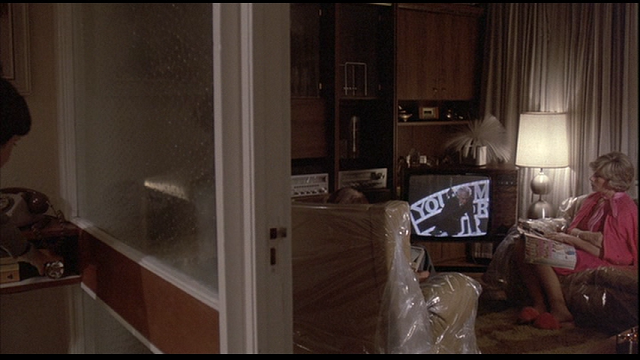Terry Gilliam’s Time Bandits, released in November 1981, is a children’s film. That is to say that it is about a young child who dreams about fantastical events happening in foreign far off lands and times. The structure of Time Bandits vaguely follows a Hero’s Journey, while subverting it at the same time. Most importantly, Time Bandits is an anti-authoritarian fantasy that nonetheless admits that some authority is good. This is a children’s film that refuses to deal in moral absolutes, fails to follow a coherent formula, and shirks most responsibility to its characters. This is hardly a children’s film.
Gilliam’s “Trilogy of Imagination” begins with youth and ends with the elderly, moving through three distinct stages of man. The first, Time Bandits, focuses on the child. It also is the only movie to focus on the problematic authority of the immediate present. 11-year-old Kevin’s parents are modern zombies focused on buying cheap new technological gadgets and watching trashy game shows on the telly. They’re not evil, or even all that neglectful…they’re just selfish and emotionally unavailable. Kevin is a boy who needs stimulus, and being isolated in his room gives him plenty of time to draw and fantasize about horses breaking through his cabinet.
That’s when a band of rogue time bandits march through his bedroom being chased by the floating head of the supreme being. You see, the bandits were dissatisfied with their working conditions under the supreme being where they were forced to do mundane tasks like fix all of the holes in the patchwork quilt of existence. When they had the chance, they stole the map of all the holes and plan on using that to steal all sorts of wealth from various famous times in history. It’s the perfect crime; after all, only the Supreme One can follow them through time.
Gilliam’s adventure through time and space is defined not through the child nor even through the bandits, but through the various authority figures that Kevin and the bandits encounter. They first encounter Napoleon, an ill-tempered short man who refuses to sign a peace treaty because he’s too busy watching a marathon performance of Punch and Judy. Robin Hood is next, presenting an authority figure who takes from the rich and gives to the poor; but the bandits, having just ripped off Napoleon, are seen as rich and have their treasure taken away and given to the poor. Of course, with each gift to the poor, one of Robin’s assistants also has to sucker punch the poor, so the altruism still comes with a price.
King Agamemnon of Egypt is the closest to a positive authority figure, adopting Kevin after Kevin saves him from an violent minotaur. They rejoice and feast but Kevin is reluctantly pulled back in to the bandits’ journey through time and space in search of “The Most Fabulous Object In The World,” a piece of fictitious bait left by Evil, a Satanic figure who is after the map so he can rip the universe to shreds. Like all of Time Bandits‘ authority figures, Evil has his negative qualities, even for evil. He kills his few minions at the slightest sign of trouble, ruling everybody with an iron fist. And the Supreme Being, well, let’s just say he’s as mischievous and duplicitous as the rest of these authority figures.
Much like Gilliam’s later entries in the trilogy, Time Bandits takes a wary view of authority. It argues that an unchecked authority figure can result in the worst outcomes. Where Time Bandits differs is in recognizing the necessity for authority. The Supreme Being is a necessary evil required to defeat actual Evil. Where Time Bandits excels is in providing a road map to being a just or moral authority figure. Extremities are seen as wrong. Greedy egomaniacal fascists like Napoleon are seen as just as evil as “altruistic” socialists like Robin Hood. Agamemnon does right by his subjects, treating them to a feast and a show for all his victory rather than just taking it all in for his own glory. Though it ends with perhaps the most mischievous finale one can imagine, Time Bandits resembles the child’s view of life, learning how to be an adult from the figures around him and judging them according to their behaviors. It isn’t anti-authoritarian for the sake of rebellion, nor is it antagonistic for shits and giggles. Time Bandits is, instead, the beginning of morality. Ultimately, being rebellious isn’t “good” in and of itself. But, sometimes, rebellion is needed to prove a lesson…


